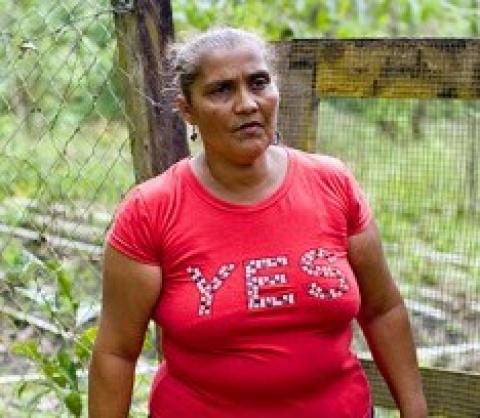
Our first reading from Genesis tells us, from the beginning of time, God, with ineffable mercy and love, having seen the lamentable wretchedness of the human race that was brought about through the weakness and pride of our first parents, chose and sent to us a savior to restore the dignity of our nature. As if this were not enough, in infinite love, God chose to claim each of us as adopted children; we must, as St. Paul exhorts us, live lives of goodness, and in turn, give praise to God who has so favored us. The Gospel story of the Annunciation silences us as we await Mary’s answer to the angel when told she would bear a son. “‘How can this be, since I am a virgin?’ ... ‘The Holy Spirit will come upon you, and the power of the Most High will overshadow you; therefore the child to be born will be holy; he will be called Son of God.” And Mary said, “Here am I, the servant of the Lord; let it be with me according to your word.”
Indeed we sing and dance with joy for this great gift given us, in the person of Mary, our mother, the immaculate one, one who walks with us daily on our earthly journey. She understands our needs, be they the daily duties of a mother and wife, doing simple household tasks, being a companion and reaching out to others in need, or struggling for a decent livelihood that upholds the dignity of our person. She knew suffering as she accompanied and witnessed her son’s cruel death on Calvary, the like we can never fully experience or understand. Mary, our mother, is our ever present advocate, presenting our needs, in whatever form, to be answered through the understanding heart and graciousness of our God.
In our world today, we witness populations of struggling men and women eking out a living that barely meets their basic needs. None suffer more than rural women. Rural women’s poor access to infrastructure and the subjection to culturally assigned gender roles limit their opportunities. Rural women have extremely limited employment opportunities and spend more time than urban women doing work like obtaining water and fuel, processing food and caring for children and the sick.
In February 2012, the Maryknoll Office for Global Concerns invited Marcelina Noriega to speak at the UN. Marcelina, who lives in Darien, the southernmost area of Panama, spoke on “rural poverty, hunger and current challenges” sharing her experiences as a community leader. She outlined the enormity of the challenges her community faces economically and environmentally. She has been involved in several projects, such as raising livestock; implementing a micro project that produces and markets health products (soaps, teas, pomades, rubbing alcohol) using plants from the rainforest; promoting reforestation with native trees through a tree nursery; and, in her role as an assistant manager of small savings and loan project, working with others in the community to train women in income generation to facilitate their continued economic sustainability.
Photo of Marcelina Noriega from the Fundacion Comunidad site.
Aware of what huge corporate farm companies are doing to the rainforest in her area, as well as laws that take away people’s lands, she not only educates against such injustices, but accompanies women to court seeking protection of their property rights. The many challenges Marcelina and her community face demand networking on the local and national levels so that many voices can be raised, not only to defend their basic human rights, but more importantly to ensure that rural women’s issues are justly addressed.
Marcelina was asked how she was able to face these challenges and problems with such great courage. She answered very simply, “I do not journey alone; my faith tells me mother Mary walks with me!” What a beautiful testimony. In Mary the immaculate, all women have been blessed; in Mary all creation finds home hope. Pray that Mary intercedes to give us forgiving hearts and the blessing of peace in our world. May Mary’s life of loving obedience and humble prayer be a beacon of light and courage for us as we seek to follow Christ.
